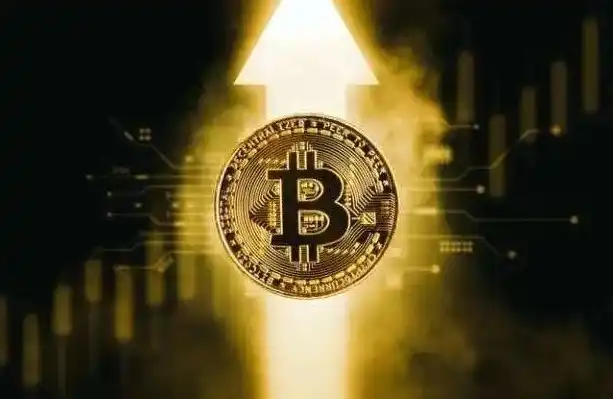Rising over 65% in one hour, a new milestone for Uniswap, the world’s largest decentralized trading platform
On the evening of February 23rd, Erin Koen, the developer and governance lead of Uniswap, posted a tweet on Twitter, "The most important week in Uniswap protocol governance history?" with a proposal to upgrade the Uniswap protocol governance system. "I believe we should upgrade the protocol to reward UNI token holders who stake and delegate tokens with a fee mechanism." Within 4 hours of posting, the tweet received over 100,000 views.
Later, the Uniswap Foundation also issued a statement stating that the Snapshot vote for the "Activate Uniswap Protocol Governance" proposal will be released on March 1, 2024, and the on-chain vote will be released on March 8, 2024.
Within the next hour, UNI rapidly rose over 65% from around $7 to surpass $12. "UNI finally empowers" also became a hot topic of discussion in the community.
Why is the new proposal worth paying attention to?
According to reports, the proposal suggests upgrading the Uniswap protocol, with proposed changes including:
1. Upgrade the Uniswap protocol governance to enable permissionless and programmatic collection of protocol fees;
2. Allocate any protocol fees proportionally to UNI token holders who have staked and delegated their voting rights;
3. Allow governance to continue to control core parameters: which pools need to pay fees, and the size of the fees.

Among them, the provision that distributes protocol fees to UNI token holders in proportion has attracted great attention from the community. As is well known, previously UNI tokens only had governance functions, and the huge transaction fees of the Uniswap protocol were unrelated to UNI holders.
The two new smart contracts involved in this proposal are V3FactoryOwner.sol21 and UniStaker.sol22. The full proposal can be found in "[RFC] - Activate Uniswap Protocol Governance".
V3FactoryOwner.sol allows for the collection of protocol fees programmatically and without permission, and includes a mechanism to incentivize the conversion of these fees into a universal ERC20 token for distribution to stakers who have deposited UNI into Unisaker.sol. In order for this contract to function, it needs to be the owner of UniswapV3Factory.
UniStaker.sol is modeled after Synthetix's StakeRewards.sol6, but extends the functionality of the contract in two key ways: 1) it requires staking accounts to delegate their tokens, and 2) it supports (but does not require) staking accounts to allocate staking rewards to any other account.
If the vote is passed, the owner of the UniswapV3Factory mainnet will be updated to deploy V3FactoryOwner.sol and enable the above-mentioned programmatic fee mechanism. According to the proposal, the next steps are:
February 23rd: According to the governance process, this post will remain open for at least 7 days for discussion.
2, February 23rd: Code4rena audit competition begins and will last for 10 days.
3. On Friday next week, March 1st, after the Code4rena competition ends, the Uniswap Foundation will release a snapshot containing the options "Yes, upgrade the owner of UniswapV3Factory", "No, do not upgrade the owner of UniswapV3Factory", and "Abstain". Any mitigation measures, V3FactoryOwner, and UniStaker instances will be deployed and verified on Etherscan.
4, March 7th: Assuming the snapshot is successful, the Uniswap Foundation will release an on-chain vote, which, if successful, will call the setOwner function of UniswapV3Factory and pass it the v3FactoryOwner address.
5. The Immunefi bug bounty will take effect on the successful chain before the vote ends. Details of the bounty (including links) will be provided before the vote on the proposed chain.
These dates may change based on the audit results and community dialogue. Assuming on-chain voting is successful, the community will be able to choose to charge fees. To this end, Gauntlet is preparing a proposed launch process and will post it on the forum. Only after completing this separate governance process will fees be collected and distributed based on the contract adopted in this proposal.
Fee conversion to UNI empowerment, how significant is it?
In short, this proposal means that Uniswap will finally implement "fee conversion". "Fee conversion" has always been a challenge for Uniswap, and Uniswap V3 was launched in May 2021, but "fee conversion" has not been activated until now.
In Uniswap, a proposal needs to go through three key stages to be approved, namely temperature check, consensus check, and governance proposal. The first two stages are off-chain voting, aimed at measuring interest and feedback on a specific proposal. The final stage is on-chain voting, which will result in changes to Uniswap protocol parameters, such as the cost conversion of the upcoming vote.
Related reading: "What will happen when Uniswap turns on the fee switch?"
Uniswap has not activated this feature for a major reason that Uniswap Labs deliberately distances itself from the Uniswap protocol. BlockBeats previously analyzed in the article "Uniswap, the most successful US internet fintech company under the Web3 dividend" that UNI tokens were different from other CEX governance tokens from the beginning, and its initial positioning was only as a tool to respond to SushiSwap's vampire attack and pressure on Uniswap's market share. Therefore, as a highly anticipated CEX, considering the unstable regulatory situation, UNI has been very cautious in empowering itself.
Due to the lack of empowerment previously, UNI holders' participation in governance voting and protocol has significantly decreased. It is reported that less than 10% of circulating UNI is used to vote on a given proposal. In addition, a large portion of existing authorizations are "outdated". As of February 1, 2024, 14 of the top 30 representatives in terms of voting rights have not voted on the past 10 proposals, and only 7 of them have created proposals.
The implementation of "fee conversion" not only stimulates existing UNI holders, but also attracts a new wave of participants to participate in governance. Moreover, since existing delegates will need to re-delegate to stake their tokens, "outdated" existing delegates may turn to representatives who have proven their support for the protocol.
The new proposal has also sparked community discussions on the return on investment for UNI. According to community member @wangkk2020's rough estimate, Uniswap's bear market LP annual fee income is $867 million. If the protocol income is collected at 1/5 in the future, the annual protocol income will be $173 million. UNI is currently priced at $11.6, with a fully circulating market value of $12 billion and a circulating market value of $7 billion. If the investment return rate is calculated based on a 50% pledge rate of the circulating market value, the annual investment return rate is 4.94% (173/35). If trading volume doubles or even more with the popularity of the bull market and web3, the annual investment return rate will be above 10%.
According to CryptoFees data, Uniswap generated $2.14 million in transaction fees in the past 24 hours. Additionally, according to Dune data, since the implementation of the new fee policy on October 17, 2023, Uniswap's frontend trading fee revenue has reached $3,564,354. After this protocol upgrade, it is foreseeable that the high return on investment through Uniswap will attract a large number of users to hold UNI.

Of course, there is also the legal risk worth paying attention to. In the four years since UNI was launched, there has been little action, one of the main reasons being regulation. After all, so many predecessors have fallen into the hands of US regulators, and the world's largest decentralized trading platform is also afraid that its tokens will be targeted by regulators due to certain issues. Therefore, UNI has long been a decoration.
However, this time the transition to dividends, regulatory issues are still the community's biggest concern. From another perspective, it is almost the most sound enterprise in the Web3 field. After four years of exploration, it is highly likely that they have found a way to solve regulatory issues before taking the next step. If feasible, it seems that it can also help the industry find a new balance between issuing coins and regulation.
Welcome to join the official BlockBeats community:
Telegram Subscription Group: https://t.me/theblockbeats
Telegram Discussion Group: https://t.me/BlockBeats_App
Official Twitter Account: https://twitter.com/BlockBeatsAsia
 Forum
Forum OPRR
OPRR Finance
Finance
 Specials
Specials
 On-chain Eco
On-chain Eco
 Entry
Entry
 Podcasts
Podcasts
 Data
Data




 Summarized by AI
Summarized by AI








